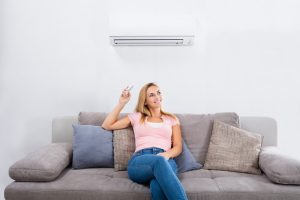When purchasing a heat pump, the first thing you should do is determine what type of heat pump you want and how big it needs to be to provide ample heating and cooling to your Hillsboro home. If you’re unsure what you need, here are some tips to size a heat pump for your home’s particular needs.
The Importance of Sizing
Before buying anything, consider the cost of an oversized heat pump. A lot of homeowners opt for the biggest device on the market, but they don’t realize that they’re paying more than necessary for their device. An oversized device cycles on and off more often than is necessary and wears down much faster, resulting in an increased electric bill and faster wear on the device. It’s not good for your heat pump or your wallet.
How to Size
To correctly size a heat pump, the first step is to perform a load calculation. This is done by measuring the total volume of the rooms being heated (in cubic meters) and then determining the heating factor based on the type of insulation used.
There are different measurements depending on the type and R-rating of your insulation. For example, a single external wall without any additional insulation has a heating factor of 15. The number of external walls, the insulation in those walls and/or the ceiling and the rating of the insulation will determine the total heating factor for the room.
You will then divide the room volume by the heating factor to determine the number of KW (converted to BTUs) needed to heat that particular room.
Professional Sizing
The reason it is so important to call a professional is that certain things, like poorly insulated windows, cracks in the foundation, leaks in the ducts and other issues can have an impact on the overall heating factor measurement. Additionally, the type of heat pump you choose must be effective when connected to an air handler for your entire home. A professional can make these measurements and ensure the right sized device is selected.
If you’re unsure about anything related to sizing and selecting a new heat pump for your home, call a professional in. They will perform a full load calculation and present your options for a new heat pump based on those calculations.


 Maybe you’ve been struggling to keep warm this winter because you’ve been trying to keep warm with a space heater instead of using your regular heater, since using the central heater would cost far more. Those portable space heaters can be handy in specific circumstances, but they aren’t a lasting or effective solution to heating your whole home. If you have had to subsidize the heat in your home lately with a small plug-in system, it may mean that you need to replace your overly expensive heating system.
Maybe you’ve been struggling to keep warm this winter because you’ve been trying to keep warm with a space heater instead of using your regular heater, since using the central heater would cost far more. Those portable space heaters can be handy in specific circumstances, but they aren’t a lasting or effective solution to heating your whole home. If you have had to subsidize the heat in your home lately with a small plug-in system, it may mean that you need to replace your overly expensive heating system.
Join Us Online